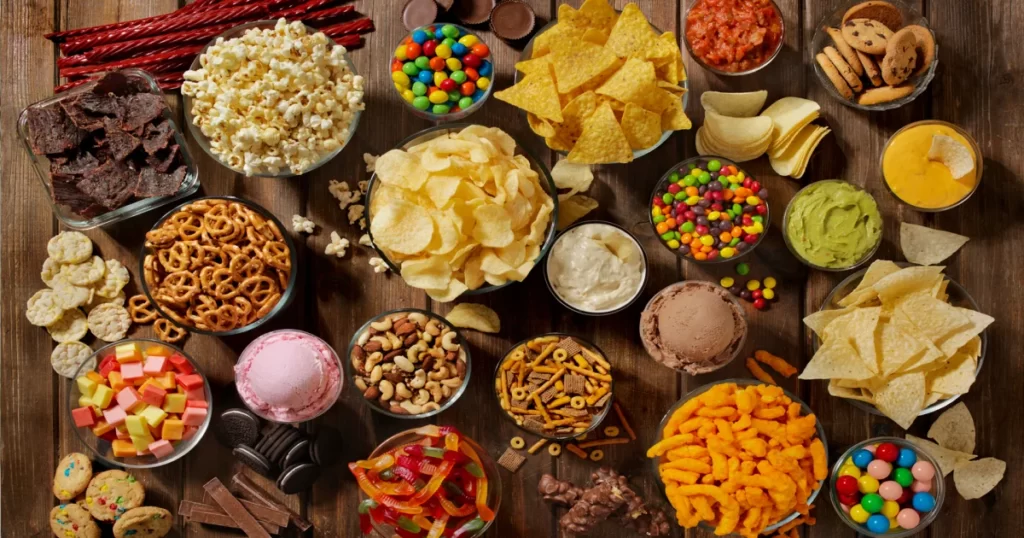
High blood pressure, also known as hypertension, is a common condition in which the force of blood pushing against the body’s arteries is too high.
The extra work needed to pump oxygen-rich blood throughout the body increases the chance of heart attacks, strokes and other serious health issues.
In Canada, one in five Canadian adults have high blood pressure. Additionally, an estimated nine in 10 Canadians are likely to develop hypertension in their lifetimes.
Luckily, research shows that a balanced diet can significantly lower one’s blood pressure and reduce the risk of developing hypertension in the first place.
According to Hypertension Canada, sodium is the biggest culprit when it comes to unhealthy blood pressure. They recommend lowering sodium intake to less than 2,000 milligrams daily to reduce blood pressure.
While our minds may immediately think of eliminating table salt, commonly eaten high-sodium foods outweigh table salt consumption by a landslide.
Read on to learn 10 of the worst foods for high blood pressure.
Restaurant foods
There’s a reason why restaurant meals taste so good: they are full of oil, sugar and especially salt.
The truth is that most restaurant food – particularly fast food – isn’t made to be healthy, but as mouth-watering as possible.
Unfortunately, this reality makes restaurant foods some of the biggest culprits for developing hypertension. While ordering your favourite takeout sounds more appealing than cooking for yourself, limit your intake of these sodium-rich meals.
Processed foods
It may be no surprise that processed foods like chips, cookies, breakfast cereals and other packaged snacks are some of the worst offenders when it comes to high blood pressure.
Many of us have been surprised when reading the nutrition labels of our favourite snacks to see multiple zeros next to the sodium, fat and sugar levels.
This is because highly processed foods are filled with additives to enhance their taste, which is why they’re so addictive.
Cured meats
Cured meats like ham, bacon, salami, sausage and smoked salmon are some of the worst foods for high blood pressure.
This is because the curing process uses salt – and a lot of it. While curing keeps these foods preserved for longer periods, it also means they are very high in sodium.
Deli meats
People with hypertension should avoid packaged luncheon meats.
Not only are lunch meats highly processed, but they contain very high sodium levels.
One slice of lunch meat has as much as 382 mg of sodium, much more than the recommended sodium amount per serving.
Soups
While soups are often viewed as healthy, veggie-loaded options, they often contain some of the highest sodium levels.
This is particularly true for canned, processed soups and broths. Try to opt for low-sodium labels when picking your favourite soups.
Bread
While you may not think bread tastes salty, it contains a lot of salt. This is especially the case for processed, pre-packaged bread.
Checking the nutrition labels of packaged foods can go a long way in reducing your sodium intake. Choosing high-fibre, whole-grain bread over high-processed loaves is always best.
Canned vegetables
While canned vegetables are great in a pinch, they also can contain a lot of salt.
Salt is added to keep canned foods flavourful, which also means these foods are not ideal for hypertension.
Try to pick low-sodium or salt-free canned goods, and wash your canned vegetables thoroughly after opening them.
Frozen meals
While frozen meals are convenient for busy days, they are some of the worst foods for your blood pressure.
This is because they are often loaded with salt to enhance the taste. Even frozen meals marketed as healthy or low-calorie may have high sodium levels, so make sure to read your labels.
Pickled foods
Foods like pickles, sauerkraut and olives are submerged in an extra-salty vinegar brine to preserve them.
While tasty additions to meals, eating pickled foods greatly increases one’s sodium intake.
Condiments
Small amounts of condiments like ketchup, mustard, and salad dressings may seem innocent, but their high sodium levels pack a punch.
Choosing low-sodium condiments and reducing your intake of them is one way to decrease your sodium intake, minimizing the work of your kidneys and arteries.
The bottom line
While high-sodium foods are just one part of developing high blood pressure, research shows that reducing your intake of high-salt foods can reduce hypertension.
If you have high blood pressure, consult with your doctor about further dietary changes or medications you may need to improve your health.
